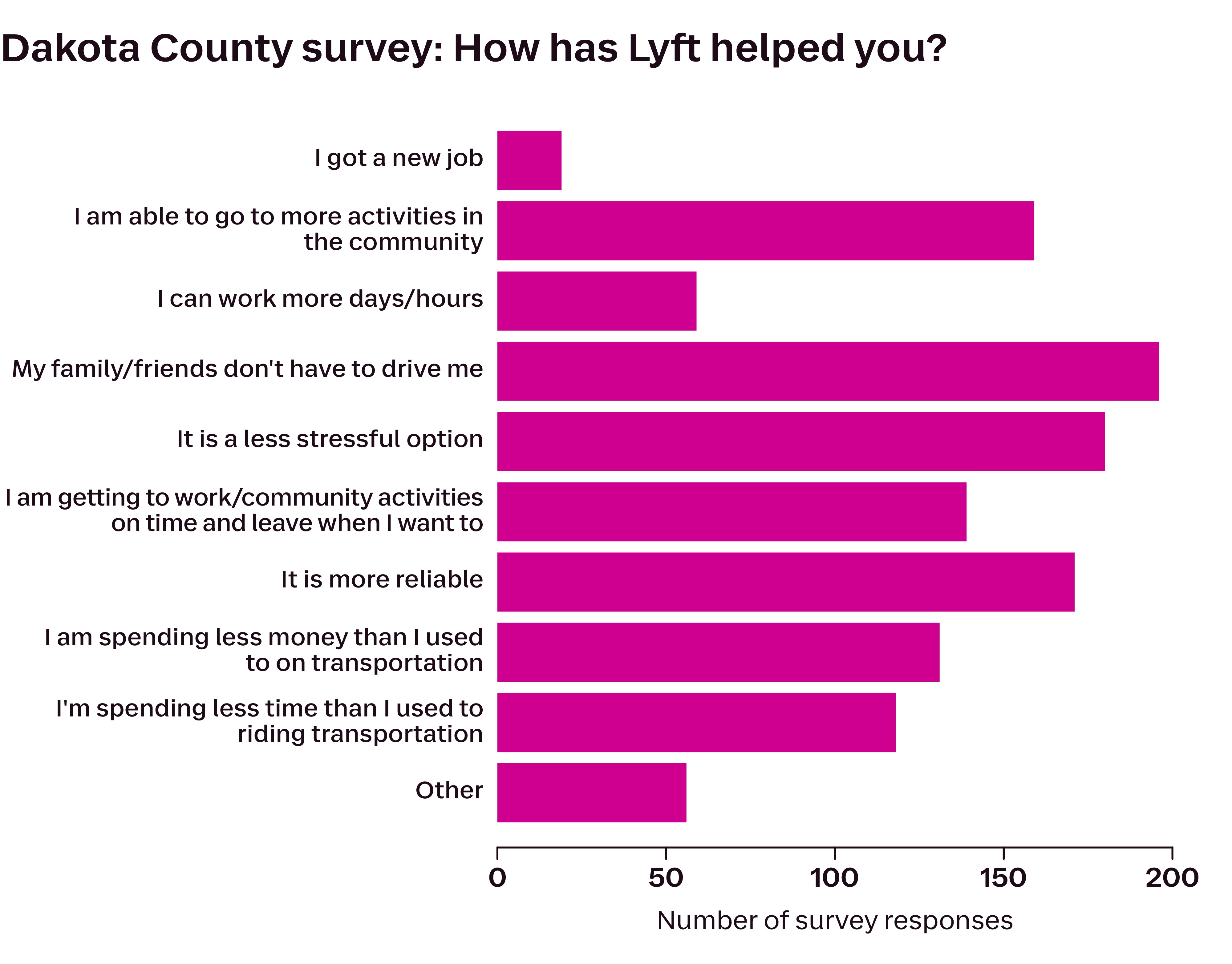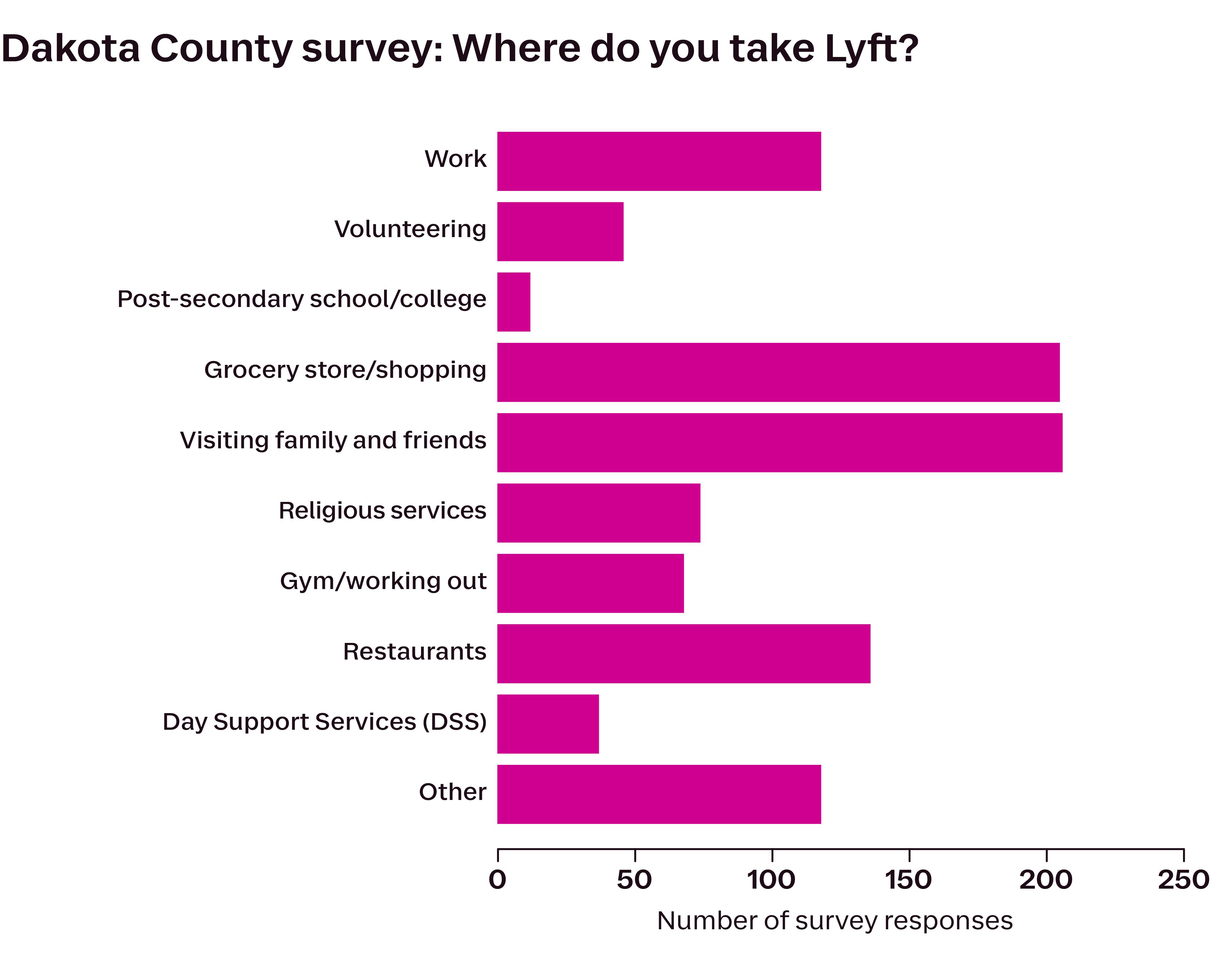
Twenty-nine-year-old Preston Edlund has lived in suburban Dakota County, Minnesota, all his life — and all his life, it’s been a challenge to get around. Preston, who has a developmental disability, can’t drive.
In 2022, he got a part-time job at a Burlington Coat Factory. He tried using a shared-ride public transportation service, but it was often delayed, making him late for work. He tried the bus. “That was even more complicated!” Then he turned to his grandfather, but two years ago, he told Preston: “ ‘I can’t do it anymore.’ I’m like, understandable,” says Preston. “He’s like 90-something.” That’s when Preston tried to walk the two-mile journey, but soon turned back. “I would have been exhausted by the time I got there,” Preston reflects. “And I’d still have to do a full day.”
Preston’s story, sadly, isn’t unique. In 2022, the National Center for Health Statistics surveyed Americans across the country and found that 14% of all adults with disabilities lacked the transportation necessary for “daily living” (over double the percentage of those without disabilities).
The lack of transportation options doesn’t just have practical implications — making it hard for people with disabilities to get and hold down a job, make appointments, get groceries, and participate in community or family events — but also psychological ones. Research published in 2023 in Frontiers in Psychology found that the ability to participate in activities, without needing to rely on caregivers or family, greatly improves the emotional well-being of people with disabilities.
The role of transportation — independent transportation in particular — is pivotal and may explain why a recent partnership between Dakota County and Lyft is generating remarkable results.
In 2018, Dakota County was awarded an Innovations Grant from the Minnesota Department of Human Services. Aware that residents like Preston were struggling to remain employed because of transportation barriers, Dakota County partnered with Lyft and designed a program to provide individuals with intellectual and developmental disabilities, who receive home and community-based services (via Medicaid), with access to rides to and from work. Not long after, positive feedback from riders encouraged the county and Lyft to expand the support beyond job access. Today, the Lyft Pass for Public Funding program helps over 2,000 people with disabilities get around their community.
In 2018, before the county was working with Lyft, they surveyed disabled residents: Zero percent said they were satisfied with their transportation options. In July 2025, the county surveyed again. Satisfaction had climbed to 84%, with 86% of respondents claiming that the program had “reduced their transportation barriers.” As one person noted: “I’m not trapped at home anymore.”

The write-in survey responses gave further insight into why the Lyft partnership is working for Dakota County’s residents with disabilities — and changing lives. About a fifth of respondents noted how the program has freed them from having to rely on friends or family to drive them around. One respondent, who had nearly missed a cousin’s wedding, noted: “With Lyft, that barrier has been removed, and I don’t need to bother my family. And I don’t need to worry about missing a wedding again!” Another reflected, “I’m far less depressed knowing I can go out and do things, and I no longer have to burden others.”
Another clear takeaway: Now, instead of having to request rides from their friends and family, they can socialize with them on a more consistent basis. Indeed, 76% of survey respondents report that they use Lyft to visit family and friends. One respondent noted how they reconnected with a friend they hadn’t seen in years, another said they got to see their grandson play basketball, and another shared how they can go play bingo once a week. “It has made my spirits so much better,” reports one respondent. “I have become happier and closer again with my family and friends.” About a quarter of people surveyed also reported being better able to attend religious services far more regularly: “Going to church every week has been an accomplishment for me,” says another respondent. In the midst of a loneliness epidemic — loneliness, which affects one in two American adults, is correlated with a greater risk of depression, anxiety, and premature death — this connection is more pivotal than ever.

Plus — as the survey comments reveal — riding daily with Lyft offers a daily positive social interaction too. Drivers offer conversation, help with groceries, and a familiar face. “People tell you they’ve been in a hard place in their life, and because of my service, the way I treat them, it changes their mood, and that can change their whole day. You can lift somebody up, mentally,” reflects driver Mohammed Buni, who has given hundreds of rides to passengers enrolled in the program. “They’ve left a lasting impression on me,” says Mohammed.
For the residents of Dakota County, the Lyft partnership is not only making a social, active life possible, but at long last, also easy.